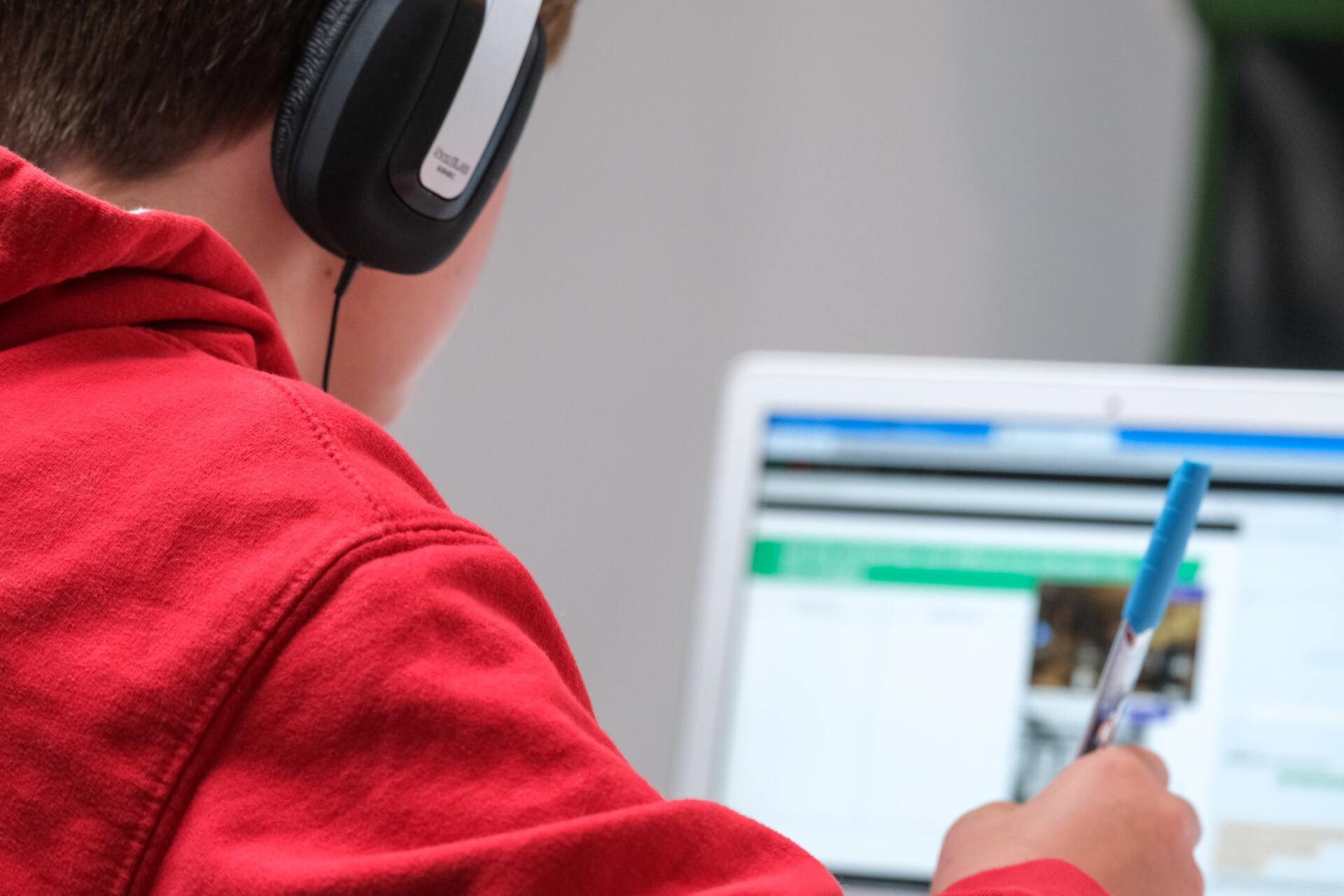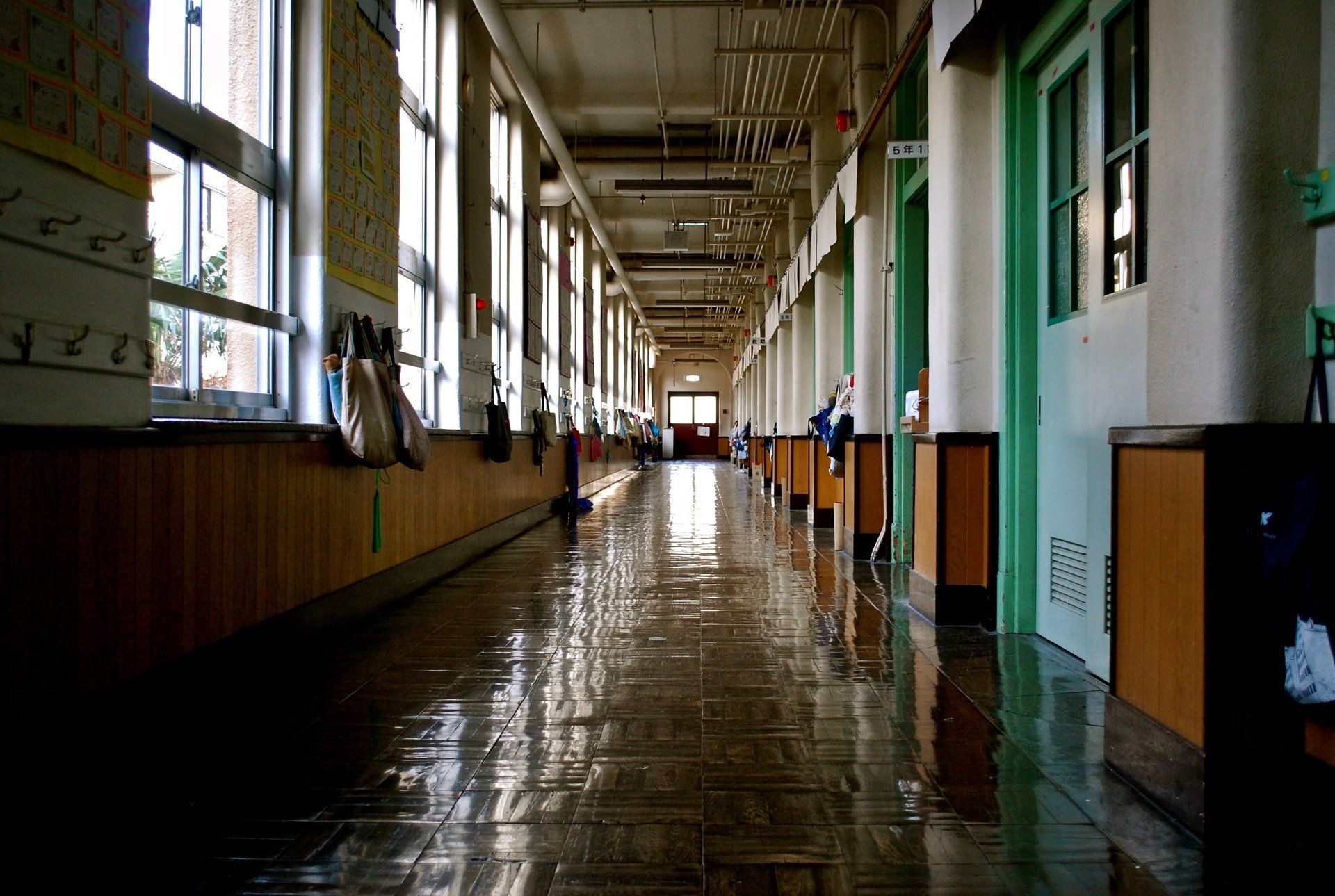Don’t Settle For Less If You Didn't Perform At Your Best | Grade 12 Results
Dr Jacques Mostert • February 22, 2021
As the Department of Basic Education prepared to release the Matric results of 2020, many young people nervously awaited their results, either knowing that they didn’t perform to the best of their ability, or with no idea of what to expect and what they would do if they didn’t do well. It is however important to know that there are various options available if things didn’t go as planned, and not worry about what came before, but rather focus on what actions can be taken going forward, an education expert says.
“At the beginning of each year, we set ourselves goals and enthusiastically make New Year’s resolutions. For a significant number of young people, this also means embarking on a new adventure, transitioning from the structured life of school to the exciting world of adulthood,” says Dr Jacques Mostert, Academic Manager for ADvTECH’s Abbotts College.
“This rite of passage usually goes along with making plans for further education and training. But what happens if things don’t go according to plan, and instead of going on to further study, you are faced with the reality that your Matric results were not good enough to start out on this new journey just yet?”
Mostert says the enthusiasm of looking towards a future filled with potential and promise can sometimes be dampened by Grade 12 results that are not as good as what were expected.
“Usually this results in a reshuffling of plans, a rush to come up with Plan B, or desperate calls to schools to enquire about re-marks or a second attempt to writing the exam. But these aren’t always the best approaches available and settling for second best need not be the way forward.”
Before making instant decisions about what to do if things didn’t go as planned, there are a few things that parents and young adults must consider, says Mostert: Embracing the power of “yet”; making a mind-set change from feeling helpless towards taking control, and embracing a growth mindset geared towards the future.
Embrace the power of “yet”
Dwelling on the past, and constantly going over the ‘what ifs’, can be debilitating, says Mostert.
“Notwithstanding the cliché of letting the past remain in the past, for a young adult with high expectations experiencing disappointment, letting bygones be bygones isn’t that easy. Accepting that a goal may not have been reached yet, and embracing the power of possibility, young people can develop a resilience that will inevitably become paramount in their personal and professional development.”
From hopeless to taking back control
The anxiety that goes hand in hand with making life-altering decisions without considering all the options is a considerable contributing factor of a sense of helplessness both parents and young adults experience, notes Mostert.
“Deciding to change course and settle for less should not be an option. We tend to believe that in the modern world of the fourth industrial revolution and omnipresent social media, there exists a set timeline to reach arbitrary milestones. The reality is that there is no set end date for reaching any goal. Young people should look past peer pressure, and take action to get back on track towards fulfilling their goals.”
Developing a growth mindset
Mostert says that no matter how attractive moving out of the house, embracing independence and forging a new future may seem, there are two inevitabilities of life, other than paying tax, every young adult must face.
The first is that change is ubiquitous and the second is that getting better never stops. Learning, especially in an ever-shrinking global market, never stops.
“Disruption isn’t always as negative as we may think at first. Taking a moment to consider all the options available and considering an alternative that at first did not look like an option often allows a person to embark on a pathway towards success.”
Mostert says apart from the usual avenues of rewrites and remarks young people might consider when receiving less than stellar results, they also have the option of redoing Matric or even just improving their subjects, to ensure they can still pursue their dreams, albeit a little bit later than initially planned.
“At Abbotts College High School, students can enrol part-time to upgrade their subjects, for instance. This approach provides students the chance to increase their marks and that enables them to meet their tertiary Admission Point Score (APS) in order to be accepted to study in the field of their dreams.”
He says while many students may not be keen to return to a school setting, institutions such as Abbotts College provide a different kind of environment which is more in line with a college campus, because the focus is on academic improvement, not rules and uniforms.
“We believe that every student is able to develop and achieve academic success, wherever it is that they start from. Improving subjects or redoing Matric in an environment that treats you like a young adult while still following a structured and organised routine, enables students to put the disappointment behind them and become increasingly independent as they manage themselves and their learning.
“Last year was an exceptionally difficult one for the Class of 2020, and for those whose results are not yet in a space which allows them to pursue their vision, our message is clear. If you take a little extra time now to invest in starting from a solid foundation, this temporary hurdle will soon be forgotten, as you embark on the path that you intended a few months down the line.”’

As the preliminary and final examinations approach, both students and parents or guardians often experience heightened anxiety and stress. This guide provides practical strategies to help parents and guardians support their children through this critical phase of their academic journey. 1. Foster Effective Organization Create an environment conducive to studying by providing a quiet, well-lit study space equipped with essential stationery. Collaborate with your child to develop a structured study timetable to set clear expectations and promote disciplined preparation. Encourage the use of resources such as past question papers, which serve as valuable tools for revision and practice. 2. Maintain Daily Check-Ins Schedule regular, intentional conversations, such as during dinner, to discuss your child’s progress. Inquire about their experience with the day’s examination paper, adherence to their study schedule, and their feelings about upcoming tests. These check-ins foster open communication and allow you to gauge their emotional and academic state. 3. Minimize Distractions Help your child stay focused by keeping electronic devices like phones, tablets, and gaming consoles out of reach during study sessions. Set boundaries on screen time and social media access to prevent procrastination. While challenging, limiting Wi-Fi access during study hours can significantly enhance productivity. 4. Support Emotional Awareness Encourage your child to identify and articulate their emotions, such as anxiety, stress, or fatigue . Recognizing these feelings is the first step toward addressing them effectively. Discuss coping strategies to help them navigate emotional challenges during this period. 5. Teach Self-Regulation Techniques Guide your child in practicing self-regulation to manage stress. Techniques include: Breathing Exercises : Inhale deeply for four seconds, hold for four seconds, exhale for four seconds, and repeat. Sensory Focus : Identify five things they can see or hear to ground themselves in the moment. Tactile Stimulation : Hold a cold object to shift focus and reduce anxiety. These methods can help your child regain calm and focus during stressful moments. 6. Promote a Balanced Routine Prolonged study sessions late into the night can lead to burnout. Monitor your child’s study habits and encourage breaks to maintain balance. Plan activities such as outings with friends, a family meal, or short recreational periods with access to devices. Engaging in non-academic activities, like helping prepare dinner, can provide a refreshing change of focus. 7. Prioritize Self-Care Support your child’s well-being by ensuring they: Eat nutritious, regular meals. Get at least eight hours of sleep by limiting screen time before bed. Engage in physical activities such as walking, jogging, yoga, dancing, or gym workouts. These practices help alleviate stress and anxiety, which are common during examination periods. 8. Practice Empathy and Patience The examination period can be emotionally taxing for both students and parents. Approach your child with empathy, actively listening and offering guidance without criticism. This fosters a supportive environment, bolstering their mental health and sense of inclusion. By implementing these strategies, parents and guardians can play a pivotal role in helping their children navigate the challenges of examinations with confidence and resilience. Good luck to all the Grade 12 students with the upcoming examinations - you most certainly can do it!

Key Takeaways Personalised learning helps teens thrive by focusing on their unique strengths, interests, and goals. This approach encourages students to take ownership of their studies, building confidence and responsibility. Teachers play a vital role by adapting lessons and feedback to suit individual learning styles. Alternative education models often integrate personalised learning to support students who need flexibility. Whether you’re exploring private high schools in Pretoria , Centurion high schools , high schools in Northcliff , Johannesburg, or high schools in Cape Town with no uniform , personalised learning can help students reach their full potential in any environment. Every young person has a unique story, but in the wrong school, that story might never be realised and celebrated. The right school, however, ensures that each story is heard and every student lives up to their full potential. Enter personalised learning: Environments where young people are seen, supported and encouraged to explore who they are and want to be in the world. When parents and students walk into a school which prides itself on being student-centered, they immediately feel this difference. In my 30 years in education, I’ve been continually inspired by what young people can achieve when given the right tools, space, and support. Success is about so much more than academic results, it also includes emotional and social growth. When students are free to express themselves, they experience deeper learning, and greater personal well-being and self-confidence. This freedom builds communication skills, sparks creativity, and fosters critical thinking, developing them into confident and capable young adults. TAILORING EDUCATION TO INDIVIDUAL NEEDS When schools shift to personalised learning, something transformative happens: Students stop feeling like just another face in the crowd and instead, they become active participants in their education. With tools like MAP assessments, teachers gain valuable insights into where a student excels and where they need support. This data informs learning plans tailored to each student’s pace and style. Some students benefit from short videos or visual aids, while others prefer hands-on tasks or one-on-one support. Platforms like Khan Academy and adaptive learning apps help teachers meet these diverse needs with precision. This model creates a more dynamic learning environment, where a struggling student can revisit a topic until it makes sense. Advanced learners are able to move on to more challenging material without waiting. Each student progresses at their own pace, in a way that works for them. BEYOND ACADEMICS The benefits of personalised learning go well beyond the classroom. Students build emotional resilience when their needs are recognised and met. Social development naturally follows as they take ownership of their learning and grow in confidence. Personalised learning doesn’t demand perfection, but invites growth. Schools become places of discovery, where students study not only the curriculum, but also discover who they are and what they’re capable of. If you are wondering whether high schools can change lives by embracing individuality, just watch a student light up when talking about a subject they love. Look at the learners who feel safe enough to speak up, take risks, and aim higher. UNLOCKING TRUE POTENTIAL When schools see students not as numbers, but as individuals with dreams and potential, education becomes truly impactful. Personalised learning is not a trend, it is a return to what learning should be: human, responsive, and empowering. As educators, parents, and communities, we must create environments where every student feels valued and every voice matters. Because when we embrace students for who they really are, we unlock the door to who they’re meant to become. FAQs How does alternative education in South Africa support personalised learning? Alternative education South Africa supports personalised learning by offering flexible teaching styles that focus on each student’s needs and learning preferences Do any high schools in Cape Town allow students to wear their own clothes? Yes, high schools in Cape Town with no uniform , like Abbotts College Rondebosch, allow students to dress casually, promoting individuality alongside academic success. How does personalised learning work in Centurion schools? Centurion schools like Abbotts College use personalised learning by adapting lessons to suit each student’s strengths and goals, helping them build confidence and achieve better results. How do I decide which high school in Centurion area is best? To choose the best high school in Centurion area , consider the school’s teaching style, support systems, and how well it aligns with your teen’s academic goals and personal growth. Why might parents choose private high schools in Johannesburg for their teens? A5. Private high schools in Johannesburg provide personalised learning, strong academic programmes, and individual support to prepare teens for university and life beyond school.

In the wake of the mid-year exams, there is much that parents and students can learn from their results, which should be used to consider the way forward, an education expert says. “I was fortunate to have one child who was very diligent as a scholar, starting to study way ahead of the exams, even from the lower grades, using her midterm break to study year after year. She never had to be asked to go and study and her study breaks were actual breaks from studying,” says Mignonne Gerli, Principal: Abbotts College Pretoria East. “This was not true for all my children. Another of my children thought that studying the day before the exam would do just fine. I remember always catching this child on a study break or as she had just finished studying. I can confidently say that I never, in five years, caught her studying. You can imagine the fights and stress (felt by me) during this time.” As parents, we know how important it is to achieve good results at school. Prior to Grade 11 and 12, students already need to have developed a mature and diligent work ethic. “We know which doors can be opened and which firmly shut, based on your school results,” says Gerli. “For this reason, we fight the good fight which means that exam periods can be extremely stressful and highly unpleasant in many households. We try various methods to cajole our less than diligent children to put effort into their studies and in some cases loathe the day that the reports are published.” Whether exam time is a breeze for you as a parent, with your model child, or absolute hell, with your sweet/funny/kind but less committed child, the end of the exams and results need to be reflected upon. And for those who suffered through the past exams, it is time to come up with different strategies for the next set of exams. “Reflection for those who appear to prepare well for exams, will take the form of considering whether their study methods were effective or if they need help with the way in which they study.” “During these exams, I watched my one granddaughter study. “Not once did I catch her on a break on the days she was with us. What I also noticed was that she studies by copying out the textbook, not something that can be remedied when she is shoulder deep into the exams. This is not an effective way to study and she will definitely need to be taught better study methods in preparation for her next exams.” What have you as a parent noticed about your child’s study methods? Can you assist or will you need a professional to help with better study methods? “Students who achieved excellent results for their exams can reflect on why they did so well and how they can build on this going forward. “The students who put little to no effort into their preparation for the exams, will need guidance and assistance from their parents to try remedy their approach to their work. There needs to be an open, calm discussion about why they did not study for the exams and what would motivate them to study and put effort into their preparation for their next exam session.” Approaches could include: Negative consequences for poor effort, such as having their phones taken away for a period of time, grounding them or taking away certain privileges. Offering a reward for effort, this may be in the form of a cash incentive for improved results or achieving a certain mark per subject, it could be purchasing them something they would like, it could be additional privileges. Reasoning with them, explaining the importance of developing a mature work ethic and achieving good results. This is something teenagers struggle to fully comprehend so some true-life examples of success and failure of family members and friends, when it comes to financial and career success, may be useful here. Go through university courses they may be interested in with them and show them what is required to qualify for the courses. I have found that many teenagers have no idea what is required to gain access to a career they wish to pursue. A reality check is sometimes all they need. Help them think about their future and what they want to achieve in life. It needs to be concrete as having a goal is a great motivator for hard work. Usually, it is the students who have no real vision for their future and what they would like to achieve who struggle to motivate themselves to study. They simply don’t get why it’s important and of value. “Exam time can be very stressful, but taking some time to consider how to make the next exam session less so, and working towards establishing a positive trajectory, can make all the difference for the future,” says Gerli.








